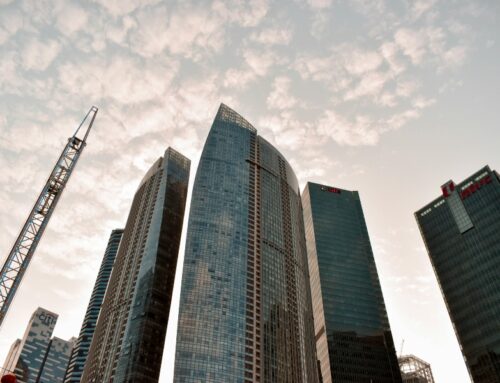Understanding which business expenses are tax deductible is crucial for accurate tax reporting and minimising your company’s tax liability in Singapore. While many costs incurred in the course of running a business are deductible, the Inland Revenue Authority of Singapore (IRAS) has specific rules outlining expenses that cannot be claimed against your income. Knowing these non-deductible expenses is just as important as identifying those that are.
Generally, for an expense to be tax deductible in Singapore, it must be “wholly and exclusively incurred in the production of income”. This is a fundamental principle under Singapore’s income tax law. Expenses that do not meet this criterion, or are specifically disallowed by the Income Tax Act 1947, are considered non-deductible.
Here are some common examples of expenses that businesses in Singapore typically cannot claim as tax deductions:
Expenses Not Wholly and Exclusively for Business
Any expense that has a personal or private element is generally not tax deductible. This includes costs that are not directly related to generating business income.
- Private Living Expenses: Costs such as personal meals, household expenses, and private travel are not deductible.This distinction is particularly important for sole proprietors and partners.
- Commuting Expenses: The cost of travelling between your home and place of work is considered a private expense and is not deductible.
Capital Expenditure
Expenses incurred to acquire or improve assets that provide a long-term benefit to the business (capital assets) are generally not tax deductible in the year they are incurred. Instead, businesses may be able to claim Capital Allowances on such assets over a period of time, which serve a similar purpose of providing tax relief for the cost of the asset.
- Purchase of Fixed Assets: The cost of acquiring assets like property, vehicles (with certain exceptions), machinery, and equipment is capital in nature and not immediately deductible.
- Renovations and Improvements of a Capital Nature: Significant renovations or alterations that improve or add to an existing asset’s value are typically considered capital expenditure. However, certain renovation or refurbishment expenses may qualify for deductions under specific schemes (e.g., Section 14Q of the Income Tax Act 1947 for qualifying expenditure).
Fines and Penalties
Fines and penalties imposed for breaches of the law or regulations are generally not tax deductible. This is regardless of whether the contravention occurred in the course of business.
- Traffic Fines: Parking tickets or other traffic violations are not deductible.
- Penalties for Late Filing: Penalties imposed by regulatory bodies like IRAS or the Accounting and Corporate Regulatory Authority (ACRA) for late submissions or non-compliance are not deductible.
Certain Motor Vehicle Expenses
Expenses related to private passenger cars (Q-plated and S-plated cars registered on or after 1 April 1998) are generally not tax deductible, even if used for business purposes. This includes the cost of the vehicle itself, as well as running costs like petrol, maintenance, and insurance. However, this restriction does not apply to commercial vehicles like vans, lorries, and buses.
Donations Not Made to Approved Institutions
While donations can be tax deductible in Singapore, they must be made to approved Institutions of a Public Character (IPCs) or the Singapore Government for the benefit of the local community. Donations made to other organisations or individuals are not tax deductible.
Expenses Incurred Before Business Commencement
Expenses incurred before the official commencement of business operations are generally not deductible. However, certain start-up expenses may be allowed under specific conditions or treated as capital expenditure eligible for capital allowances.
Drawing and Salaries for Sole Proprietors and Partners
For sole proprietorships and partnerships, drawings or salaries taken by the owner or partners are considered an allocation of profit, not a business expense, and are therefore not tax deductible.
Navigating the complexities of tax deductibility can be challenging for businesses. Properly identifying and classifying expenses is vital for accurate tax computations and avoiding potential issues with IRAS.
If you require assistance or tailored advice on tax matters, including understanding deductible and non-deductible expenses for your business in Singapore, the experienced team at Raffles Corporate Services Pte Ltd is here to help.
For further assistance or inquiries, you can contact the Raffles Corporate Services team via email at [email protected].
Yours sincerely,
The editorial team at Raffles Corporate Services







Leave A Comment